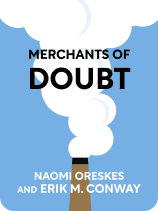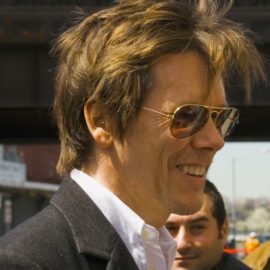

This article is an excerpt from the Shortform book guide to "Merchants of Doubt" by Naomi Oreskes and Erik M. Conway. Shortform has the world's best summaries and analyses of books you should be reading.
Like this article? Sign up for a free trial here .
Are you skilled in evaluating science? How do you know what’s true and what’s false?
In the book Merchants of Doubt, Naomi Oreskes and Erik Conway take on people and organizations who create the impression that scientific findings that threaten their agenda or ideology are unsettled—or flat-out wrong. The authors look at some of the issues that merchants of doubt are tackling today and share keys to evaluating science so that you can protect yourself from being taken in.
Read on to start developing the skill of evaluating science.
Doubt-Mongering Today
The original edition of Merchants of Doubt was published in 2010 and updated in 2020. Despite the victories of the merchants of doubt (MOD) in the climate change arenas pre-2010, Oreskes and Conway thought things might be improving because:
- The media was decreasing its coverage of climate change deniers.
- The 2006 documentary An Inconvenient Truth helped show Americans that anthropogenic climate change was very real.
- In 2007, Al Gore’s work on climate change made him a shared winner of the Nobel Peace Prize.
- The Obama administration was making progress against the fossil fuel industry and Republicans.
- Most importantly, a coalition of territories, cities, and groups led by Massachusetts sued the Environmental Protection Agency (EPA) for failure to adhere to the Clean Air Act—the act requires the government to regulate dangerous air pollutants, and they didn’t regulate carbon dioxide. The Supreme Court found that the Clean Air Act did legally require the EPA to regulate (or justify why they weren’t). This was important because it meant that if there were already laws in place that required the executive branch to regulate, Congress had no say.
All of this progress stalled when Donald Trump was elected:
- The U.S. withdrew from existing climate agreements and revoked the Clean Power Plan.
- Previous regulations were overturned. For example, in 2015, the EPA decided to ban chlorpyrifos, which causes brain damage in embryos. Under Trump, the EPA backpedaled on the decision, claiming that there wasn’t enough evidence of its harms to ban it.
- The MODs reprised the same settled issues that we looked at in previous chapters. For example, the tobacco debate restarted around vaping in the U.S.
Additionally, today, it’s even easier for MODs to go public with their opinions, no matter how ludicrous or dangerous, because of the Internet. Anything on the Internet is sharable and permanent, and there aren’t gatekeepers on the Internet (for example, journals that will refuse to print a MOD’s letter).
Oreskes and Conway believe the world is in a bad place, and they see this book as a wake-up call. Scientists are often told not to be negative because they’ll depress people, which leads to them giving up rather than acting. Oreskes and Conway agree that negativity can be paralyzing, but reassurance that things aren’t so bad when they really are creates the same effect—inaction.
Protect Yourself From Doubt-Mongering
Doubt-mongering is still alive and well. So, how do you avoid being taken in by merchants of doubt (MODs)? How can you cultivate the skill of evaluating science for yourself?

———End of Preview———
Like what you just read? Read the rest of the world's best book summary and analysis of Naomi Oreskes and Erik M. Conway's "Merchants of Doubt" at Shortform .
Here's what you'll find in our full Merchants of Doubt summary :
- How doubt-mongering techniques are used to discredit those who threaten a person or company's agenda
- The 10 most common doubt-mongering techniques
- Steps you can take to protect yourself from doubt-mongering






